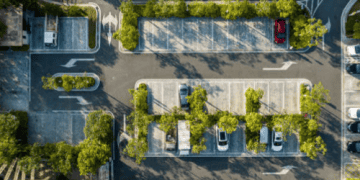The concept of development continues to evolve as societies strive to understand their strengths, opportunities, and environmental responsibilities. For centuries, development has been a focal point for economists, policymakers, and professionals across various fields, initially emphasizing improvements in living conditions for different demographics. As societies advance, the scope of development has expanded to include social justice, fundamental rights, democracy, and transparent governance as essential metrics.
Historically, influential thinkers such as Adam Smith and John Stuart Mill examined wealth distribution and pathways to reduce poverty. Over time, the discourse shifted to address broader issues like equality, freedom, and justice, shaping policy decisions aimed at enhancing citizens’ material well-being and tackling inequality.
However, previous economic development philosophies often overlooked the needs of future generations and environmental sustainability. Despite early warnings about population growth and resource limits, mainstream economic theories largely disregarded the implications of these issues. The publication of “The Limits to Growth” in 1972 raised awareness about the potential consequences of unchecked growth, yet it faced skepticism.
A turning point came with the 1987 Brundtland Report, which defined sustainable development as meeting current needs without compromising future generations. This report laid the groundwork for the Rio Earth Summit in 1992, where global leaders emphasized the necessity of prioritizing sustainable development and realigning national strategies to reflect new economic, social, and environmental demands.
The Sustainable Development Goals (SDGs), established in 2015, aimed to eradicate poverty and address global challenges while protecting the environment. The SDGs include 17 areas of focus, building on the Millennium Development Goals framework and highlighting the importance of cleaner energy, climate action, and responsible consumption.
Despite broad acceptance, the sustainable development paradigm has faced criticism for being vague and lacking measurable milestones. Nonetheless, it provides a comprehensive framework that considers present and future needs, emphasizing social, economic, and environmental policies.
In Nigeria’s Abia state, which has a population of approximately 4.8 million and a GDP of about $7.1 billion, the government has embraced the sustainable development model. The leadership recognizes the potential of this framework to enhance community development and resource management.
While acknowledging the importance of reducing carbon footprints, there are concerns that aggressive deadlines set by other nations may be unrealistic for developing regions. The state argues for the consideration of local economic contexts, especially where oil and gas play significant roles. It emphasizes the need for practical approaches that balance sustainability with immediate socio-economic challenges.
The leadership maintains that prioritizing initiatives addressing poverty, hunger, unemployment, and access to basic services is crucial for fostering long-term socio-economic development in the region.
Explore comprehensive supply chain news at The Supply Chain Report. Those interested in international trade can visit ADAMftd.com for free tools.
#SustainableDevelopment #EconomicGrowth #ClimateAction #SocialEquity #DevelopmentGoals















